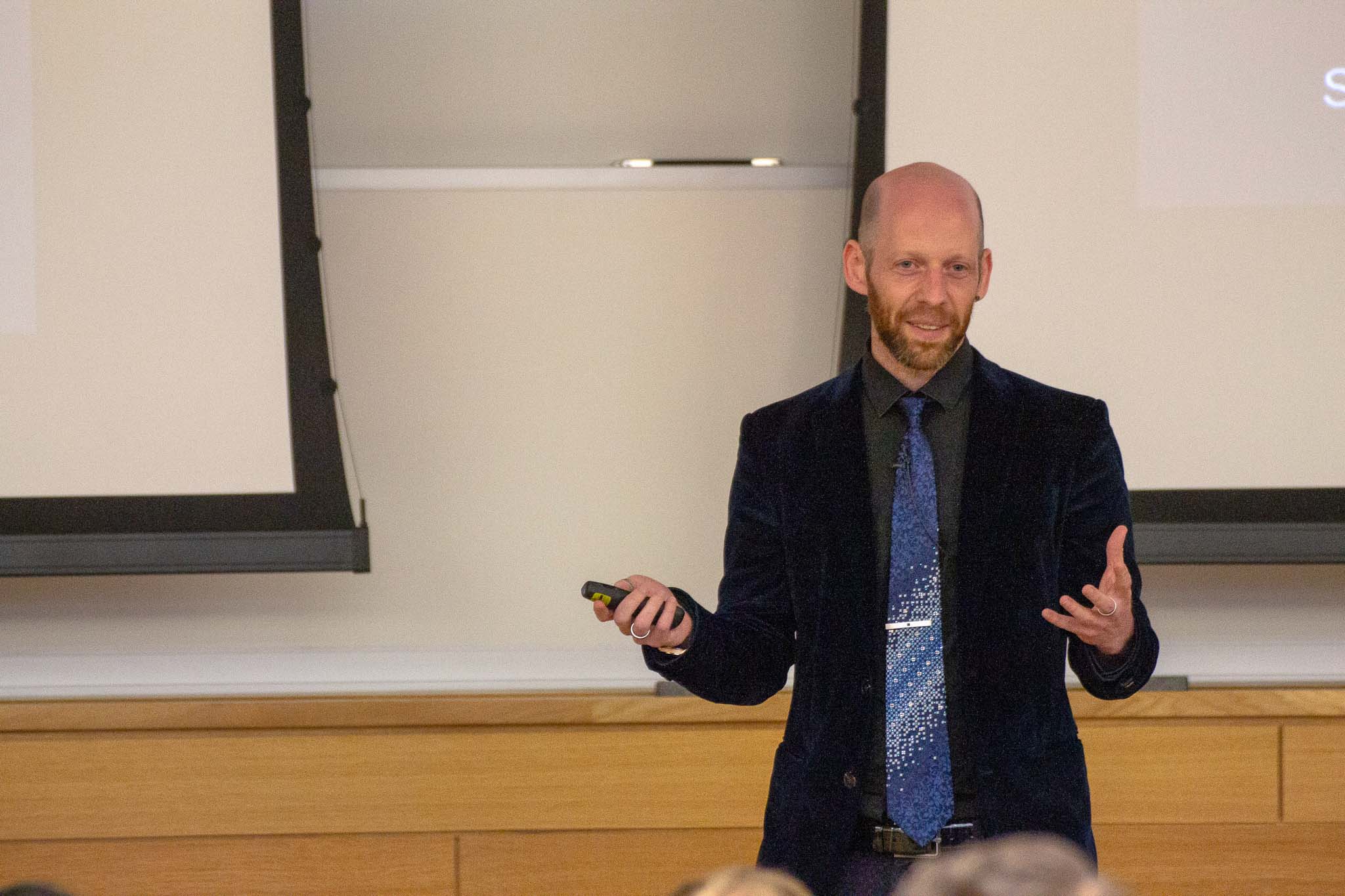Dr. Michael Cohen lectures about the neuroscience to why we make mistakes. |Photo by Chris Crosby.
This past Monday, Dr. Michael Cohen, an associate director of Neuroscience at Radburn University in the Netherlands, delivered his lecture about why we make mistakes and the neuroscience behind the phenomena to a crowd of 75 students and community members at the University of Rhode Island.
The researcher said that there are three reasons why humans make mistakes and partial mistakes.
First, he said that the brain is noisy. While neurons firing off in the brain is needed in order to survive, noisy brains can also be attributed to when kids are bored or cannot focus. He said it therefore makes sense why people make mistakes when they cannot focus.
According to Cohen, the second reason we make mistakes is because of the concept of exploration or looking around for a better deal. He used an example of a couple that keeps looking for the best restaurant deal in a city even though they already found that deal two hours ago.
The third way people are not able to focus can be pinned down to exploitation, or sticking to what you know. An example of this is a person who only paints a picture using watercolors because that’s all they’ve ever known how to do. Cohen said people make mistakes in this way since they do not try to improve the situation that they may be in.
Cohen used a large portion of the lecture to talk about the relationship between EEG Neurology, which is a technical way of saying brain wave activity.
Cohen said that when studying the wave activity in college students who made a mistake, his research team saw the most activity in the mid-frontal theta. This area of the brain is slightly above the forehead and is the area where humans put their hand when they make a mistake.
According to Cohen, all of the science behind making mistakes didn’t start until 2007, and he joked to the audience about what it is like to discover something in the industry.
“Whenever you’re starting something new in the science field, it’s exciting because you are experiencing something new,” he said. “Then there is the boring phase because the exciting stuff is already done and other scientists need to prove your work through countless practices of replication.”
While Cohen admitted that the work itself is now not exciting, first-year student Temi Aina was appreciative of Cohen giving the lecture so far away from his native country.
“I really liked how he came all of the way here to give his research,” she said. “I feel like getting interested in research that is in its early stages is much more interesting than research that’s been going on for decades.”
Aina ended her thoughts on the lecture about how she valued Cohen’s ambition in the field.
“I’m really interested in how he’s focusing on research that most people aren’t interested in,” she said. “You never know when you can get the next breakthrough. He is taking this chance.”

